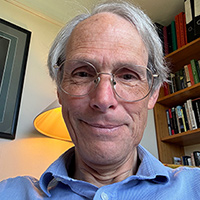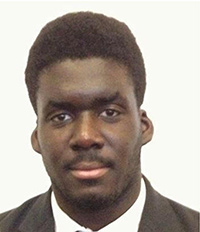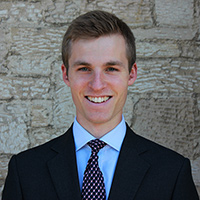Meet the ‘Historian’ editorial board

The editorial board of The Historian is made up of volunteers, who meet regularly to review submitted articles and to set the themes for upcoming articles. Find out more about our current board membership below.
Jenni Hyde
 Dr Jenni Hyde is a Trustee and Fellow of the Historical Association. She works as a freelance historian and Lecturer in Early Modern History at Lancaster University. She is a Fellow of the Historical Association and of the Royal Historical Society. Her first book, Singing the News: Ballads in Mid-Tudor England, was published in 2018 by Routledge while her critical edition of a seventeenth-century ‘musical’, John Balshaw’s Jigge: Revelry and Royalism in Restoration Lancashire, appeared in 2021. Other work has appeared in Renaissance Studies, History, and the Transactions of the Royal Historical Society. She is a former music teacher, a classically-trained soprano and a keen folk singer.
Dr Jenni Hyde is a Trustee and Fellow of the Historical Association. She works as a freelance historian and Lecturer in Early Modern History at Lancaster University. She is a Fellow of the Historical Association and of the Royal Historical Society. Her first book, Singing the News: Ballads in Mid-Tudor England, was published in 2018 by Routledge while her critical edition of a seventeenth-century ‘musical’, John Balshaw’s Jigge: Revelry and Royalism in Restoration Lancashire, appeared in 2021. Other work has appeared in Renaissance Studies, History, and the Transactions of the Royal Historical Society. She is a former music teacher, a classically-trained soprano and a keen folk singer.
Ian Armour
 Ian’s specialism is the Habsburg Monarchy and the Balkans in the 19th-early 20th centuries, but by extension Eastern and Central Europe generally. He did his BA at the University of Victoria in British Columbia, an MA at the London School of Economics, and a PhD at the School of Slavonic & East European Studies. He is co-author of a textbook on imperial Germany, and sole author of two textbooks on Eastern Europe between 1740 and the present, and a monograph on Austria-Hungary and Serbia in 1867-1881. He is retired and lives in Devon with his wife and two cats.
Ian’s specialism is the Habsburg Monarchy and the Balkans in the 19th-early 20th centuries, but by extension Eastern and Central Europe generally. He did his BA at the University of Victoria in British Columbia, an MA at the London School of Economics, and a PhD at the School of Slavonic & East European Studies. He is co-author of a textbook on imperial Germany, and sole author of two textbooks on Eastern Europe between 1740 and the present, and a monograph on Austria-Hungary and Serbia in 1867-1881. He is retired and lives in Devon with his wife and two cats.
Natasha Brockman
 Natasha is based in Cambridgeshire and is currently completing her MA in the History of Political Thought and Intellectual History. She has wider academic interests that extend into philosophy and theology and is passionate about making history accessible and engaging for all ages. She loves writing and researching, and is dedicated to inspiring a love of history in everyone.
Natasha is based in Cambridgeshire and is currently completing her MA in the History of Political Thought and Intellectual History. She has wider academic interests that extend into philosophy and theology and is passionate about making history accessible and engaging for all ages. She loves writing and researching, and is dedicated to inspiring a love of history in everyone.
Nigel Browne-Davies
 Nigel Browne-Davies is a lawyer and historian specialising in the Atlantic World and the study of the African diaspora, Black Atlantic, creolization, and identity formation. Browne-Davies has published extensively on the Back-to-Africa movement and the resettlement of African American and Afro-Caribbean settlers and Liberated Africans in Sierra Leone and Liberia. He has published chapters in books and his articles have been published in several academic journals including the International Journal of African Historical Studies, the Journal of Imperial and Commonwealth History, the Liberian Studies Journal, and the Transactions of the Historical Society of Ghana. He has also written and published biographies for the Oxford Dictionary of National Biography. Browne-Davies graduated with a bachelor’s degree in history from Queen Mary University of London, a Master’s degree in history from the University of Birmingham, and an LLB from BPP University. He is currently a PhD candidate at Queens’ College, University of Cambridge. He is an Associate Fellow of the Royal Historical Society and a Fellow of the Royal Society of Arts. He also serves as a Board Member of the Black Loyalist Heritage Society, is a former member of the editorial board of the Journal of Sierra Leone Studies, and is a former Delegate on The National Archives of the United Kingdom, Kew User Advisory Group.
Nigel Browne-Davies is a lawyer and historian specialising in the Atlantic World and the study of the African diaspora, Black Atlantic, creolization, and identity formation. Browne-Davies has published extensively on the Back-to-Africa movement and the resettlement of African American and Afro-Caribbean settlers and Liberated Africans in Sierra Leone and Liberia. He has published chapters in books and his articles have been published in several academic journals including the International Journal of African Historical Studies, the Journal of Imperial and Commonwealth History, the Liberian Studies Journal, and the Transactions of the Historical Society of Ghana. He has also written and published biographies for the Oxford Dictionary of National Biography. Browne-Davies graduated with a bachelor’s degree in history from Queen Mary University of London, a Master’s degree in history from the University of Birmingham, and an LLB from BPP University. He is currently a PhD candidate at Queens’ College, University of Cambridge. He is an Associate Fellow of the Royal Historical Society and a Fellow of the Royal Society of Arts. He also serves as a Board Member of the Black Loyalist Heritage Society, is a former member of the editorial board of the Journal of Sierra Leone Studies, and is a former Delegate on The National Archives of the United Kingdom, Kew User Advisory Group.
Nikki Clarke
 Nikki is finishing a PhD at Birkbeck; her research is on newsgathering and accuracy in multimedia English news sources between 1658 – 1685. Her MA dissertation was on the working lives of professional musicians in Commonwealth and Protectorate London. She is a mature student and was a journalist for the BBC in her working life. She is trustee of The Cromwell Museum in Huntingdon and a volunteer in the Royal School of Needlework Archive.
Nikki is finishing a PhD at Birkbeck; her research is on newsgathering and accuracy in multimedia English news sources between 1658 – 1685. Her MA dissertation was on the working lives of professional musicians in Commonwealth and Protectorate London. She is a mature student and was a journalist for the BBC in her working life. She is trustee of The Cromwell Museum in Huntingdon and a volunteer in the Royal School of Needlework Archive.
Rosalind Crone
 Rosalind Crone is Professor of History at The Open University. As a nineteenth-century historian, she has published widely on popular culture, crime and justice (including prisons), reading and literacy, and education. Her books include Violent Victorians: Popular Entertainment in 19th Century London (Manchester University Press, 2012) and Illiterate Inmates: Educating Criminals in 19th Century England (Oxford University Press, 2022). Rosalind is also resident historian and frequent co-presenter on Lady Killer with Lucy Worsley (BBC).
Rosalind Crone is Professor of History at The Open University. As a nineteenth-century historian, she has published widely on popular culture, crime and justice (including prisons), reading and literacy, and education. Her books include Violent Victorians: Popular Entertainment in 19th Century London (Manchester University Press, 2012) and Illiterate Inmates: Educating Criminals in 19th Century England (Oxford University Press, 2022). Rosalind is also resident historian and frequent co-presenter on Lady Killer with Lucy Worsley (BBC).
Tom Hamilton
 Tom teaches early modern European history at Durham University, and his research focuses on French history as well as the history of criminal justice. He is particularly interested in the experience and impact of the French Wars of Religion (1562–1598), and this was the subject of his recent book A Widow’s Vengeance after the Wars of Religion: Gender and Justice in Renaissance France, which focused on an exceptional trial for sexual violence in war.
Tom teaches early modern European history at Durham University, and his research focuses on French history as well as the history of criminal justice. He is particularly interested in the experience and impact of the French Wars of Religion (1562–1598), and this was the subject of his recent book A Widow’s Vengeance after the Wars of Religion: Gender and Justice in Renaissance France, which focused on an exceptional trial for sexual violence in war.
Steve Illingworth
 Steve Illingworth is a part-time university lecturer in history education. He has been a secondary school history teacher, educational consultant and teacher trainer. His published historical writings include a book about the Pilgrimage of Grace rebellion against Henry VIII and articles on topics such as pacifist activities in both world wars and attempts at social reconstruction in Britain after 1918. He has delivered talks to the Historical Association annual conference on five occasions.
Steve Illingworth is a part-time university lecturer in history education. He has been a secondary school history teacher, educational consultant and teacher trainer. His published historical writings include a book about the Pilgrimage of Grace rebellion against Henry VIII and articles on topics such as pacifist activities in both world wars and attempts at social reconstruction in Britain after 1918. He has delivered talks to the Historical Association annual conference on five occasions.
Matthew Martin
 Matthew is a Lecturer in Initial Teacher Education, a PhD student and an A-Level History examiner. Before this, Matthew was Head of History and Assistant Principal in charge of teaching, learning and assessment in London. Matthew's personal historical interests are in Early Modern England and Europe with a particular focus on social history. Matthew is published and is currently writing a project on the Great Fire of London. Outside of work, Matthew enjoys reading, enjoying new foods and is a qualified wine taster.
Matthew is a Lecturer in Initial Teacher Education, a PhD student and an A-Level History examiner. Before this, Matthew was Head of History and Assistant Principal in charge of teaching, learning and assessment in London. Matthew's personal historical interests are in Early Modern England and Europe with a particular focus on social history. Matthew is published and is currently writing a project on the Great Fire of London. Outside of work, Matthew enjoys reading, enjoying new foods and is a qualified wine taster.
Joe Saunders
 Joe Saunders is a freelance historian and working part-time toward a PhD at the University of York on the print trade in early modern England. He loves family and local history, is a tutor at two adult-learning organisations, and a Trustee of the British Association for Local History.
Joe Saunders is a freelance historian and working part-time toward a PhD at the University of York on the print trade in early modern England. He loves family and local history, is a tutor at two adult-learning organisations, and a Trustee of the British Association for Local History.
James Sewry
 An editorial board member since 2022, James is a civil servant at the Ministry of Housing, Communities and Local Government. He has previously taught history in the independent sector and has contributed to the Times Literary Supplement and Aspects of History.
An editorial board member since 2022, James is a civil servant at the Ministry of Housing, Communities and Local Government. He has previously taught history in the independent sector and has contributed to the Times Literary Supplement and Aspects of History.

